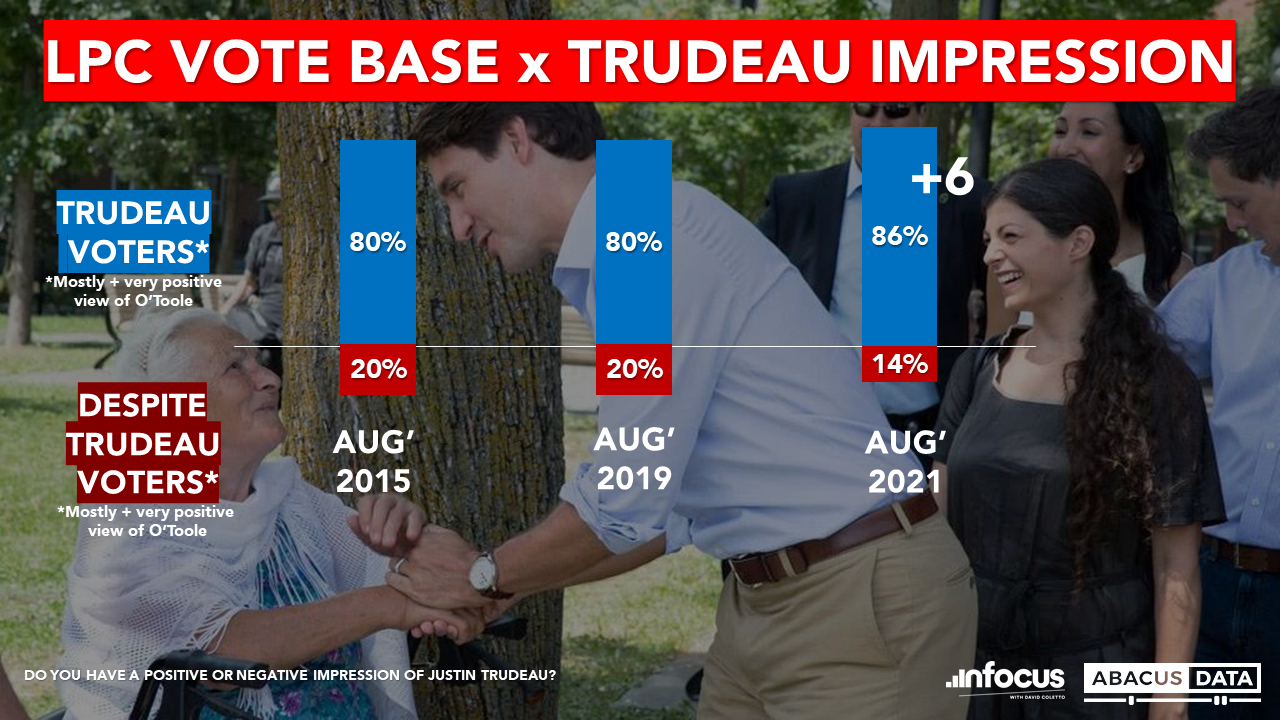Abacus Election Bulletin: A Question of Leadership(s)
August 21, 2021
Each day during the 2021 Federal Election campaign, researchers at Abacus Data will share insights and analysis from our polling in concise, insights-focused reports. To never miss our polls and analysis, subscribe to our newsletter.
If you’ve spent some time in our parliamentary democracy, you’ll have caught on that power is centralized here. Very centralized.
A lot of that centralization happens around whoever is Prime Minister, who at some point in their career is an optimistic party leader trying to become one. It follows that voters for any given political party, come election time, are motivated to do so because of who is on top, with their view of the leader’s personality and values being the primary if not a strong tertiary driver of their vote intention.
Things don’t always play out that way. Looking at this year’s 3 main hopefuls we see one sticks out as the least established among his own support base; Erin O’Toole. While this is often experienced by new entrants who don’t have ancient pedigrees or a previous election to solidify their reputations, 1/3rd of CPC’s present-day voters are either O’Toole agnostic or antagonistic. In other words, they either have a negative view of him, are neutral, or don’t really know what to think. This is in notable contrast to both Justin Trudeau and Jagmeet Singh, most of whose voters are fond of their party leaders.
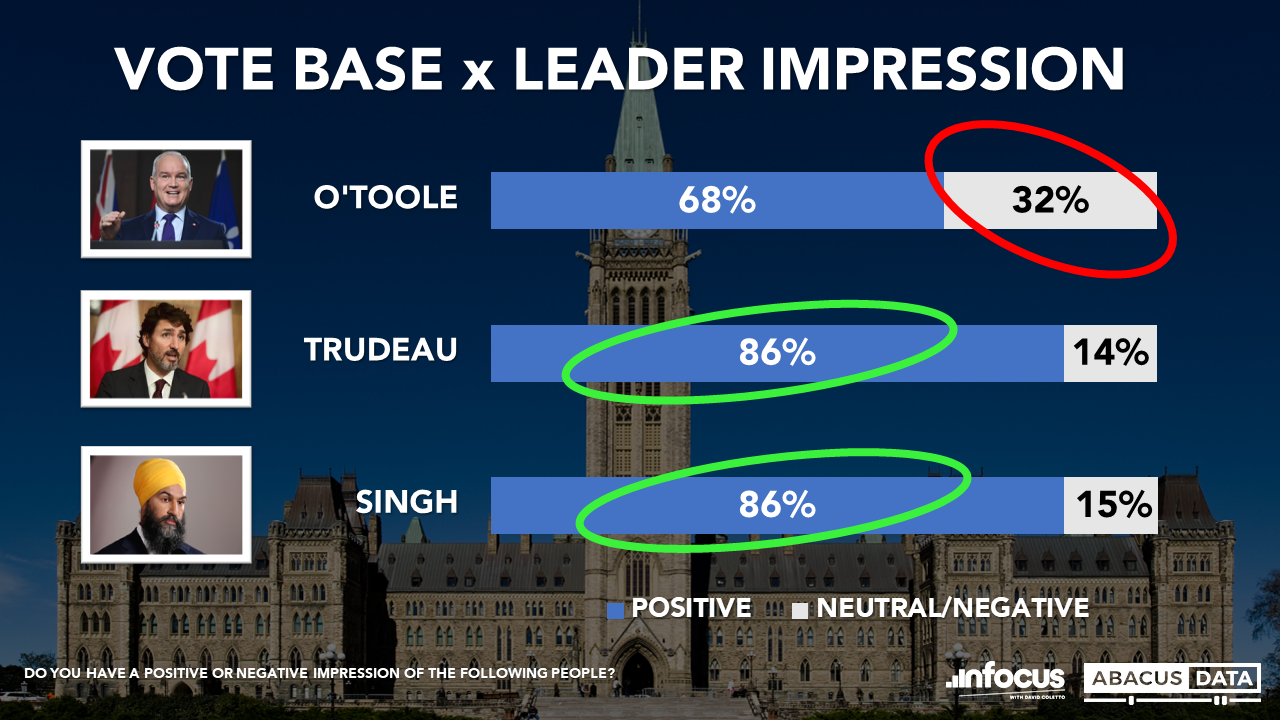
[sc name=”signup”]
THE DESPITE O’TOOLE VOTER
These “Despite O’Toole” voters are the fresher faces of the party base. The vast majority – 8 in 10 – are under the age of 60. Half have the LPC or NDP as their 2nd choice, and when we ask them about their ideal outcome for this election, a substantial proportion aren’t even looking for a Conservative majority government. In part, despite their present vote orientation, most assume the CPC won’t win at all, be it minority or majority. This is a striking attitudinal departure from O’Toole friendly voters, most of whom assume the CPC will win this time around.
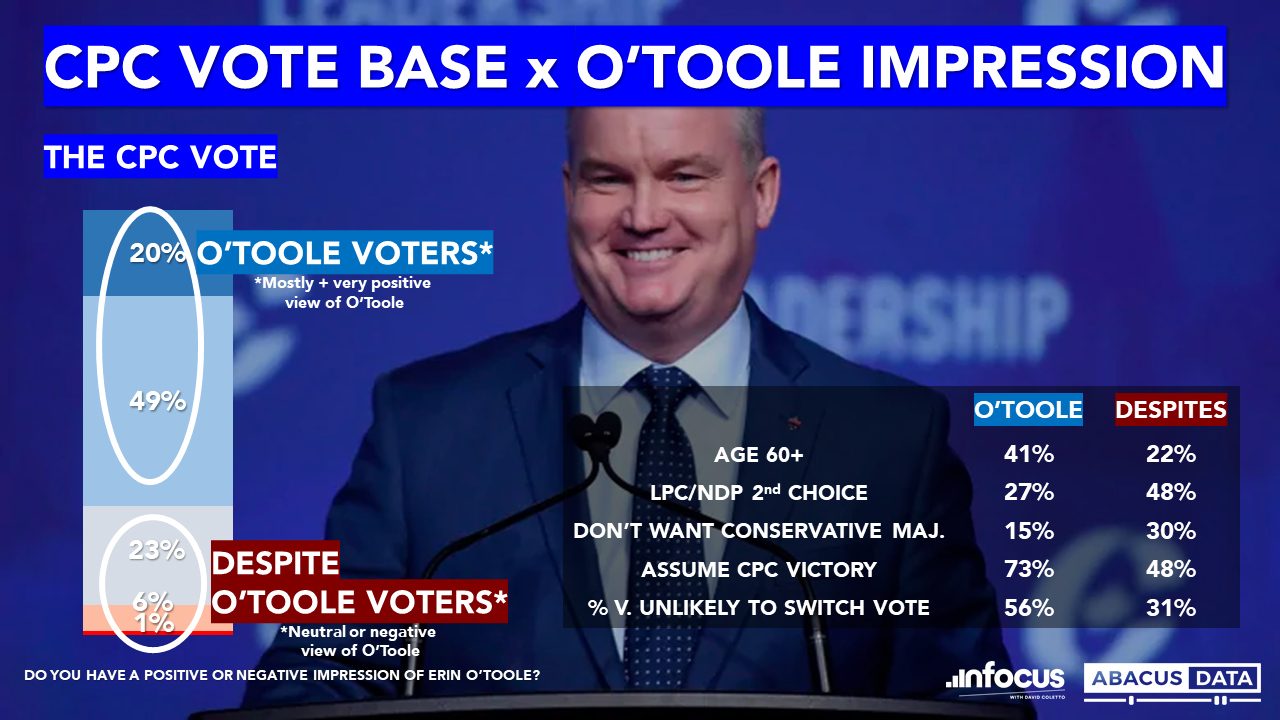
Underscoring these views is a softer loyalty to the party. 2 in 3 of these CPC voters say they are either likely to change their vote (30%) or merely “somewhat unlikely” (39%).
They align with other CPC voters on most issues, including their priorities this election. They primarily are concerned about the cost of living and seeing a credible economic plan this campaign. And they like other brands of Conservatism, just not O’Toole’s. On average Premier Ford is more popular with this group than the federal CPC leader, with 70% feeling outright positively (30%) or neutral (39%) about the well-known Premier of Ontario.
Fundamentally they view the Conservative Party and where Erin O’Toole is taking it through a different lens than other Tory voters. Most of these voters reject that the CPC has the best outlook and ideas of all the parties, with most instead having concerns about where they would take the country should they get elected.
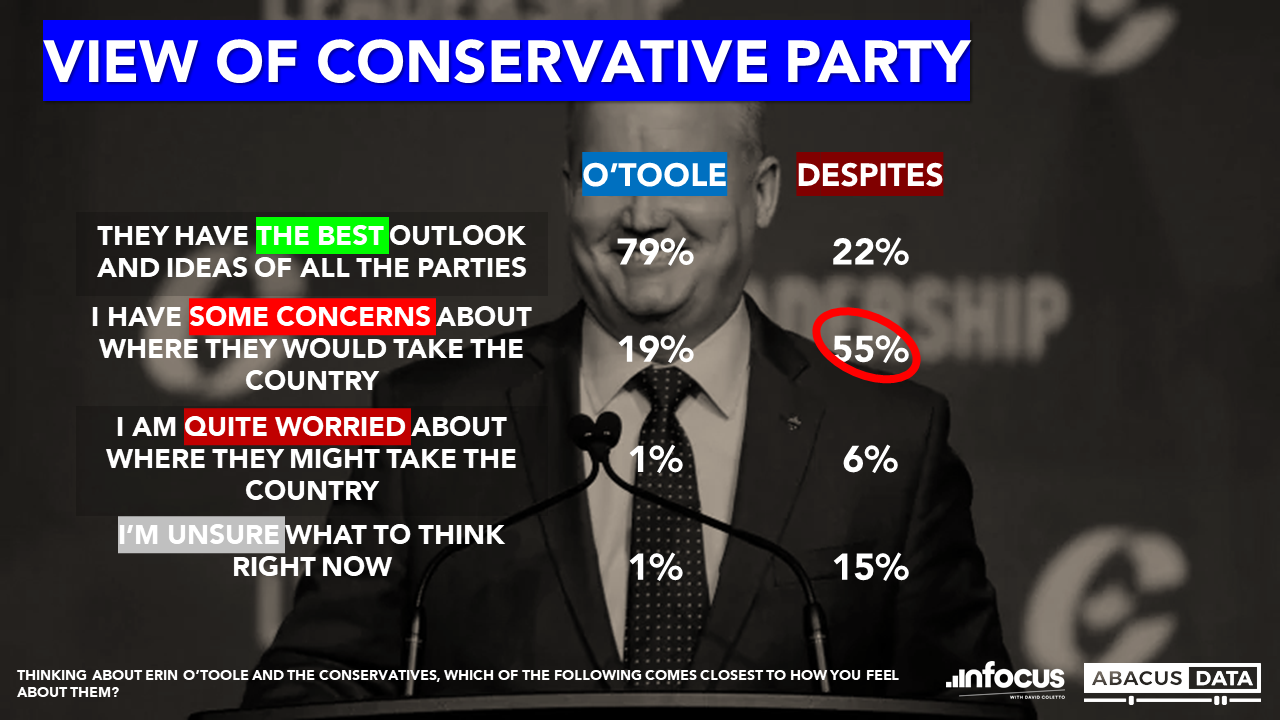
There’s enough of a pull towards the party that these younger Canadians would opt for the Conservatives over the Liberals and NDP, but they aren’t entirely confident in their choice. One of O’Toole’s many challenges will be not to lose these fair-weather Conservatives and convince them that the party leadership does have the plan and credibility to carry the country through an unprecedented economic and health crisis. Or at the very least to present one that consistently looks better than what the Prime Minister has had on offer.
METHODOLOGY
The survey was conducted with 1500 Canadian adults from August 9th to 12th, 2021. A random sample of panelists were invited to complete the survey from a set of partner panels based on the Lucid exchange platform. These partners are typically double opt-in survey panels, blended to manage out potential skews in the data from a single source.
The margin of error for a comparable probability-based random sample of the same size is +/- 2.5%, 19 times out of 20.
The data were weighted according to census data to ensure that the sample matched Canada’s population according to age, gender, educational attainment, and region. Totals may not add up to 100 due to rounding.
Abacus Data follows the CRIC Public Opinion Research Standards and Disclosure Requirements that can be found here: https://
[sc name=”signup”]
ABOUT ABACUS DATA
We are the only research and strategy firm that helps organizations respond to the disruptive risks and opportunities in a world where demographics and technology are changing more quickly than ever.
Find out more about what we are doing to help clients respond to the COVID-19 pandemic.
We are an innovative, fast-growing public opinion and marketing research consultancy. We use the latest technology, sound science, and deep experience to generate top-flight research-based advice to our clients. We offer global research capacity with a strong focus on customer service, attention to detail and exceptional value.
We were one of the most accurate pollsters conducting research during the 2019 Canadian Election.
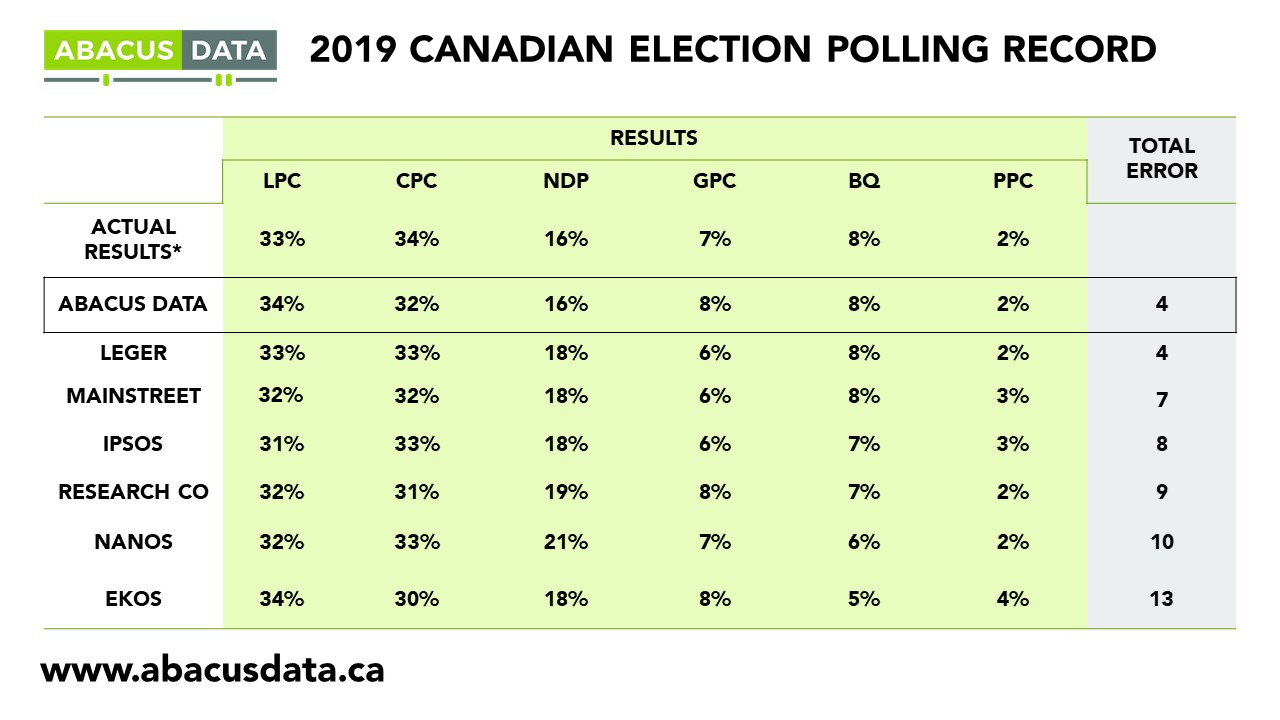
Contact us with any questions.
Find out more about how we can help your organization by downloading our corporate profile and service offering.
[sc name=”signup”]


